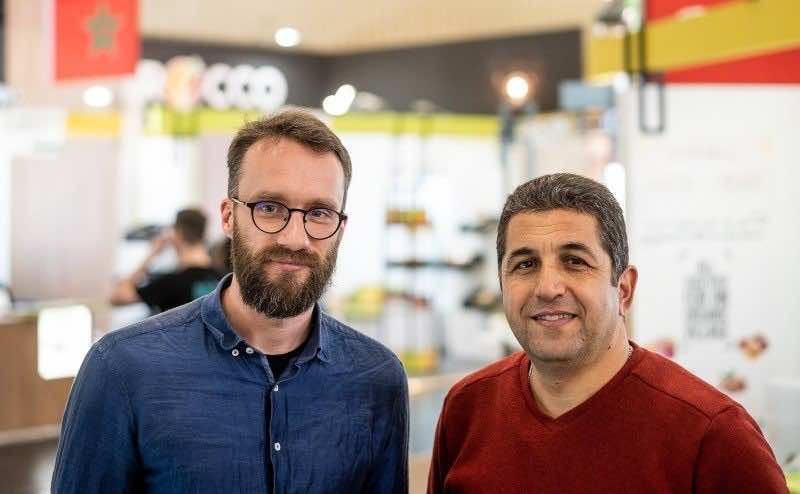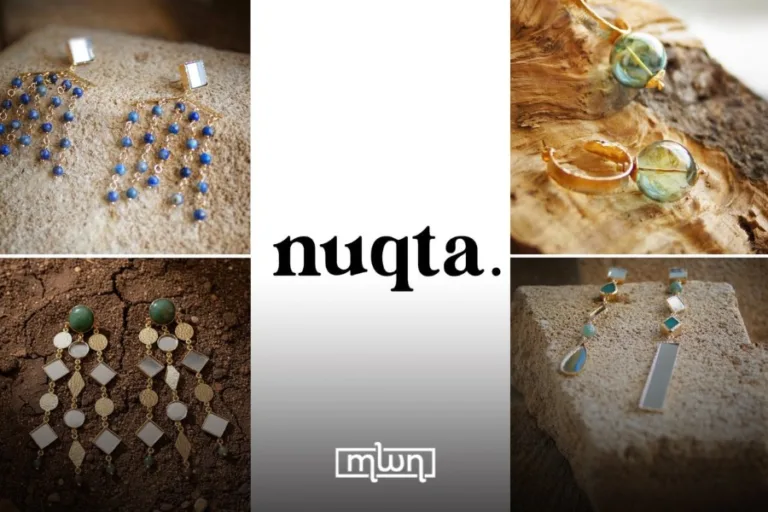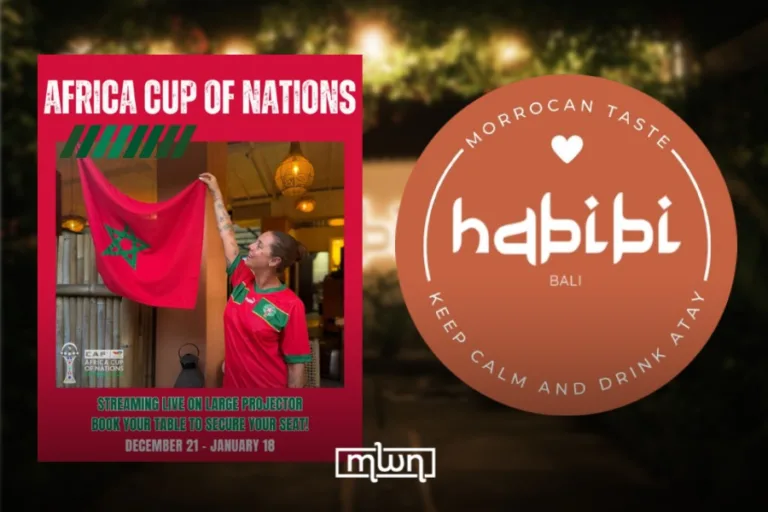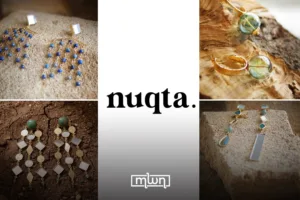Agadir – Four-time gold award-winning organic Olive Oil Seasons bridges Morocco and Germany’s health and gastronomy-appreciating cultures. They also bust widely believed myths about olive oil.
Now eaten with every meal, rich and fruity Mediterranean olive oil is far from co-founder Markus Siebeneicher’s humble beginnings. As a young boy from Eastern Germany, Siebeneicher rarely enjoyed fresh fruit, which was exuberantly priced when it was available.
After the wall came down, Siebeneicher was free to travel and chose a rare, adventuresome route. He planned to learn Arabic and travel through the Sahara all the way to Palestine. While pausing in Morocco to acquire Arabic, love struck the young German. Siebeneicher and his Moroccan wife Halima have been married for 15 years and have two children.
For two decades, Siebeneicher did well as a self-made IT developer, UX designer, and consultant with clients such as Google, eBay, Telecom, and others. Siebeneicher told Morocco World News (MWN) that his love of nature combined with his entrepreneurial inclination “drove me to olives and eventually olive oil.”
When Siebeneicher was backpacking through Morocco two decades ago, a kind chemist named Dalal sheltered him, and they became good friends.
Dalal Najem and Markus Siebeneicher, along with Reda Tahiri, are now partners in Olive Oil Seasons’ Moroccan-German company.
Najem brings “knowledge of the market,” and Siebeneicher brings “German seriousness” to the table at their organic olive oil business, the German sommelier told MWN. Eight awards from the best international olive oil competitions (Italy, Spain, Israel, and Germany) validate their splendidly combined work ethics.
Olive Oil Seasons’ Partner and Master Miller Tahiri studied agricultural science and organic farming in Canada. For each production, there is a fixed team of ten people for production and distribution as well as freelancers during harvest season.
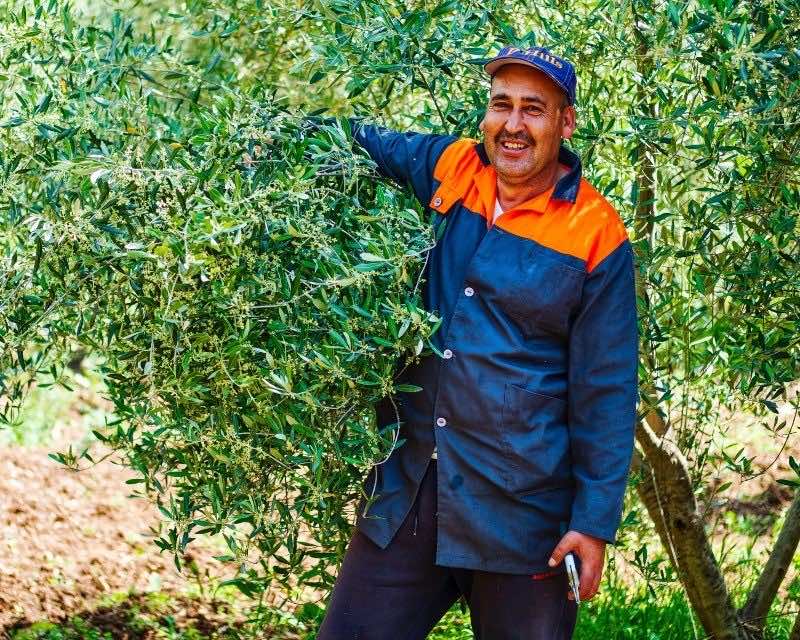
Tahiri returned to Morocco with a passion to “not repeat the mistakes” of “the large monocultures in Spain and Italy [that] destroy the humus in the soil and are very susceptible to disease,” he said. He now has the pleasure of working with olives grown 10 km away from Meknes, in a region with plenty of biodiversity. Potatoes, onions, almonds, and other agriculture surround the olive farm, allowing it to be organic without pesticides.
For his part, Siebeneicher received professional education on olives “from the best in the field.” He attended Esculea Superior Del Aceite De Olivia (ESAO) in Spain. “It included an intensive tasting, education, field, and production experience. I have learned so much about the tree, fruit, production, health benefits, and tasting that over the years, I have become a professional in the field,” he told MWN.
The Olive Oil Seasons team has an in-house doctor. Siebeneicher’s wife Halima is a dermatologist and provides the company with background on the health benefits of olive oil for skin and hair.
While her husband continues to taste “other premium production olive oils” from around the world for professional reasons, Halima’s family now only has Seasons Olive Oil on their table. “They are convinced with the quality,” Siebeneicher says. “Whenever you taste something fresh and fruity, if someone tells you you should go back to rancid or defective olive oil, would you go back?”
Oldest myth
While the shelves in German supermarkets offer plenty of organic olive oils, the Seasons’ brand has taken extensive measures to ensure its superior quality. For one, they voluntarily test for mineral oil and plastic residues. Sebeneicher explains, “Olive oil can be contaminated by plastic and mineral oil, unknowingly during production and storage phase” and “still be sold as organic.”
Mineral oil and plastic contamination occur even in certified organic oils as the certification only means they are free of pesticides in the growth stage.
Even Moroccans who have been eating olive oil for centuries mistake bad olive oil for “good.” Moroccan members of the Olive Oil Seasons team find that the “biggest myth” among Moroccans is about the taste of olive oil. They say “uneducated consumers, actually often believe that the taste of fermentation or rancidity is the regular olive oil taste. But that’s because they are only used to badly produced or badly stored olive oil.”
The team explains that fermentation is a defect, as well as rancidity. Such quality should declassify the olive oil to be a virgin olive oil “or even lamp oil, but it is not an extra virgin olive oil anymore.”
Siebeneicher clarified: “Great and healthy olive oil should be bitter, fruity, and fresh on the mouth. First is the fruitiness on the tongue, then the bitterness develops, and freshness in the mouth lasts pleasantly for a long time.”
So how do Germans respond to high-quality Moroccan olive oil?
In general, Siebeneicher said, “Germans like to think and to explore.” Olive oil’s bitterness is not a deterrent for educated German consumers, who Sebeneicher says understand that it “comes from the very healthy antioxidants (polyphenols). At that point, many of our clients are positively surprised and continue to order our oil.”
Olive Oil Seasons sells freshly bottled olive oil online directly from their warehouse in Bremen, Germany. Many of their customers appreciate the organic quality so much that they regularly purchase the olive oil as gifts.
In his studies, Siebeneicher learned that the Moroccan Picholine variety of olives has a “very rich profile of fruitiness and bitterness deriving from the super healthy polyphenols.”
These polyphenols, he explains, have been fed to mice, and it is found those mice live twice as long as their counterparts who do not receive polyphenol supplements.
More myths
The Moroccan-German enterprise has two more myths to bust. Firstly, people from cultures that do not grow olives “romantically idealize the traditional farming and ways of production,” says Siebeneicher.

However, he explains, “for more than three decades there have been thousands of studies funded by the International Olive Oil Council in Madrid, proving that modern technology, like centrifuges instead of donkey power, results in a much cleaner and healthier olive oil.”
Probably the biggest worldwide myth the Seasons’ team fights is about using olive oil to fry or at high heat points. Based on numerous studies, a recent article on the Seasons Olive Oil website argued that olive oil can be used for roasting and even frying.
“The polyphenols, together with the monounsaturated fatty acids, protect the olive oil from burning and give it an extremely high compositional stability,” the article said.
Aside from maintaining pure organic and taste standards, fighting oil myths, and winning awards, the next thing Siebeneicher and the team are thinking about is argan oil. With an inquisitive German and three scientific Moroccans, the “very special product” of argan oil is now being explored by the team for its health benefits and marketability.
Read also: Morocco’s Growing Role as ‘Gatekeeper of the World’s Food Supply’

